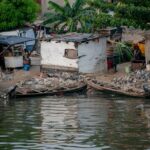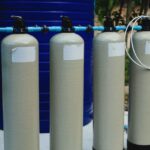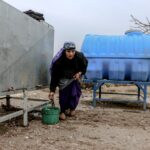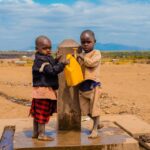Water Pollution in Ghana: Major Causes and Effects
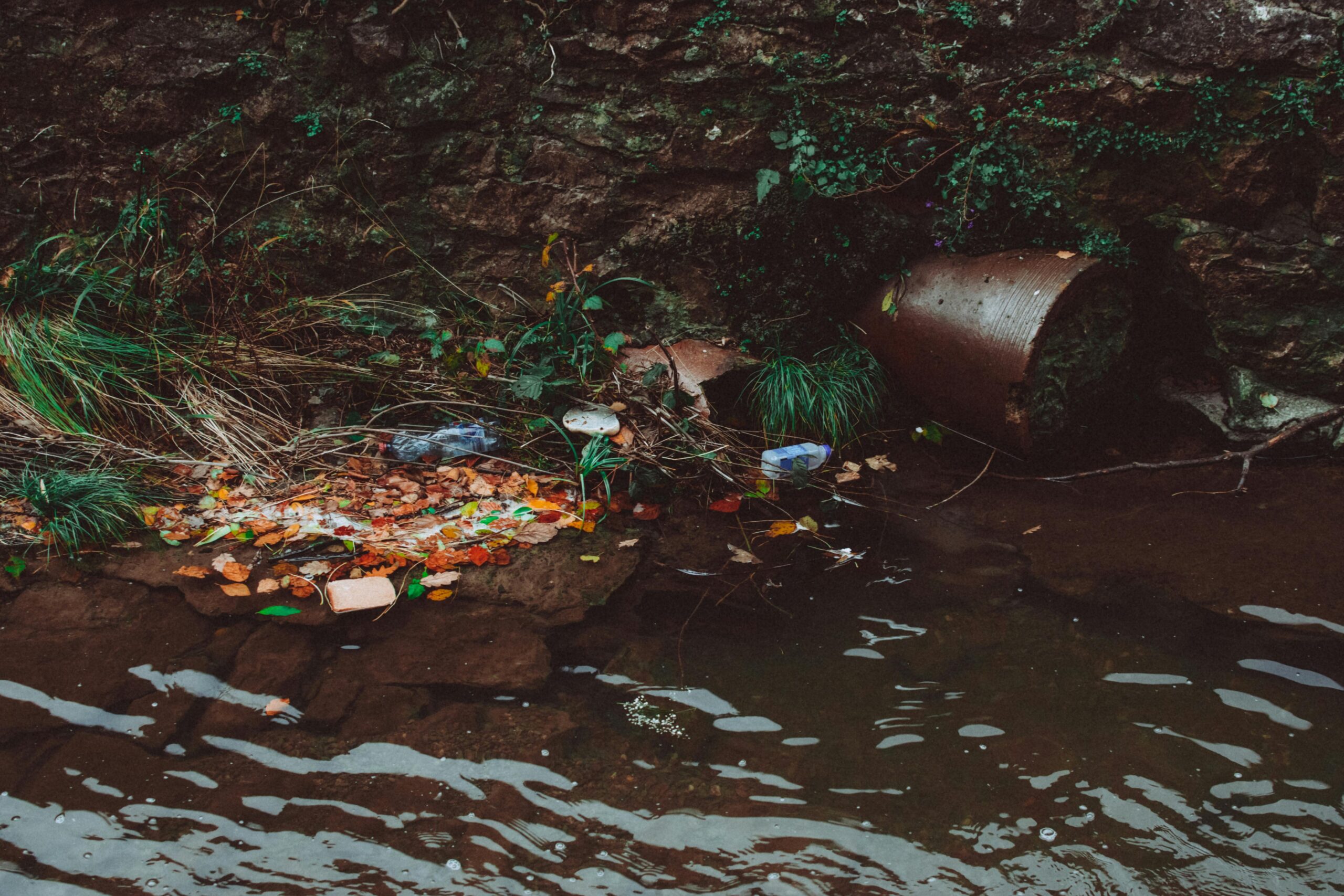
Water is life, but in Ghana, many water sources are getting polluted. Rivers, lakes, and even underground water sources are being contaminated by human activities, making clean water harder to find. Polluted water is unsafe for drinking, farming, and fishing, affecting the health and daily lives of millions. This article explores what causes water pollution in Ghana and how it impacts people and the environment.
Understanding Water Pollution
Water pollution happens when harmful substances get into water bodies, making them unsafe for use. This can be chemicals from factories, waste from homes, or even plastic trash. In Ghana, some rivers that once provided fresh water are now too dirty to drink from. There are different types of pollution, such as:
- Chemical pollution – from pesticides, mining, and industrial waste.
- Biological pollution – bacteria and viruses from untreated sewage.
- Plastic pollution – plastic waste that clogs water bodies.
- Oil pollution – spills from boats and oil-related activities.
Major Causes of Water Pollution in Ghana
Many factors contribute to water pollution in Ghana. Some of the biggest causes include:
- Industrial Waste Disposal – Some factories dump chemicals and waste into rivers instead of treating them properly. This pollutes the water and harms both humans and animals.
- Illegal Mining (Galamsey) – Many illegal miners use dangerous chemicals like mercury to extract gold. These chemicals wash into rivers, poisoning the water.
- Agricultural Runoff – Farmers use fertilizers and pesticides to grow crops, but when it rains, these chemicals wash into nearby rivers and lakes.
- Poor Waste Management – In many places, people throw plastic bags, bottles, and other waste into gutters, which end up in rivers and block drainage systems.
- Sewage and Domestic Wastewater – Many communities do not have proper toilets or sewage systems, so human waste often ends up in water bodies.
- Oil Spills and Maritime Pollution – Oil leaks from boats and fuel stations near water bodies can pollute drinking water and harm fish.
Effects of Water Pollution on Health
When people drink or use polluted water, it can lead to serious health problems. Some of the common effects include:
- Waterborne Diseases – Contaminated water can cause diseases like cholera, typhoid, and diarrhea, which can be deadly, especially for children.
- Long-Term Health Risks – Chemicals from mining and farming can enter drinking water, leading to long-term health issues such as liver or kidney damage.
- Skin and Eye Infections – Bathing in or coming into contact with dirty water can cause rashes, infections, and irritation.
Polluted water is a silent killer, affecting people’s well-being and putting extra pressure on healthcare systems. If nothing is done, more people will struggle to find safe water for drinking and daily use.
Effects of Water Pollution on the Environment
Water pollution does not only affect people—it also harms nature. Some of the biggest environmental effects include:
- Destruction of Aquatic Life – When rivers and lakes are polluted with chemicals and waste, fish and other water creatures struggle to survive. Many die, reducing fish populations and affecting people who depend on fishing.
- Contaminated Soil and Crops – Polluted water used for farming can make soil unhealthy and reduce crop yields. Some chemicals in the water can also enter crops, making them unsafe to eat.
- Loss of Clean Drinking Water Sources – Many communities rely on rivers, lakes, and wells for drinking water. When these sources are polluted, people have to travel long distances or buy expensive bottled water.
- Blocked Drainage Systems and Flooding – Plastic waste and other garbage clog drains and waterways, leading to flooding during heavy rains.
Economic Impact of Water Pollution
Water pollution affects Ghana’s economy in many ways:
- Loss of Income for Fishermen – Many fishermen depend on rivers and lakes for their livelihood, but pollution kills fish or makes them unsafe to eat, leading to job losses.
- Increased Healthcare Costs – More people get sick from polluted water, increasing medical expenses for families and putting pressure on hospitals.
- High Cost of Water Treatment – When water is heavily polluted, the government and private companies must spend more money to clean it before people can drink it.
- Impact on Tourism – Polluted beaches and rivers discourage tourists from visiting, reducing income for communities that rely on tourism.
Government and Community Efforts to Reduce Water Pollution
The Ghanaian government, local leaders, and various organizations are working to reduce water pollution. Some efforts include:
- Stricter Regulations on Industries – Companies that pollute water are being monitored, and some face fines if they dump waste illegally.
- Banning Illegal Mining – The government has taken steps to stop illegal mining, but enforcement remains a challenge.
- Improving Waste Management – Some cities are introducing better waste collection systems and encouraging recycling to reduce plastic pollution.
- Public Education and Awareness – Many groups are teaching people about the dangers of water pollution and how to dispose of waste properly.
- Community Cleanup Projects – Some local communities organize cleanup days to remove waste from rivers and drainage systems.
Role of NGOs and International Organizations
Many non-governmental organizations (NGOs) and global agencies are also involved in the fight against water pollution in Ghana. Some of their contributions include:
- Providing Clean Water Solutions – NGOs like Aqua Maya help build boreholes and filtration systems in areas where clean water is scarce.
- Funding Cleanup Projects – International groups fund projects that help remove waste from rivers and lakes.
- Training Communities on Water Safety – Some organizations teach people about keeping water sources clean and preventing pollution.
- Advocating for Stronger Policies – NGOs push the government to create better laws to protect water bodies from pollution.
While these efforts are making a difference, more work needs to be done to ensure that all Ghanaians have access to clean and safe water.
Challenges in Controlling Water Pollution
Despite efforts to reduce water pollution in Ghana, several challenges remain:
- Weak Enforcement of Laws – While there are regulations against pollution, many companies and individuals still dump waste into rivers without consequences. Some government agencies lack the resources to properly enforce the rules.
- Rapid Urbanization – As cities grow, more waste is produced, but proper waste disposal systems are not expanding fast enough to keep up. Many areas lack proper drainage systems, leading to polluted water sources.
- Illegal Mining (Galamsey) – Galamsey is the illegal small-scale mining of gold in Ghana. Although the government has taken action against illegal mining, some operations continue in secret, dumping harmful chemicals like mercury into rivers.
- Limited Waste Treatment Facilities – Many industries and households do not have access to proper waste treatment, so they discharge untreated waste into nearby water bodies.
- Lack of Public Awareness – Some people are unaware of how their actions contribute to water pollution. For example, dumping plastic waste into gutters during rainfall may seem harmless, but it eventually clogs waterways and pollutes rivers.
Sustainable Solutions for Preventing Water Pollution
To protect Ghana’s water sources, both short-term and long-term solutions are needed. Some effective strategies include:
- Stronger Law Enforcement – The government must ensure that industries and individuals who pollute water bodies are held accountable through strict penalties and monitoring.
- Expanding Waste Treatment Facilities – More recycling plants and sewage treatment facilities should be built to properly manage waste before it reaches water sources.
- Encouraging Responsible Mining Practices – Instead of banning mining completely, the government can support legal miners who use environmentally friendly methods and enforce strict regulations against illegal operations.
- Community-Led Initiatives – Encouraging local communities to take ownership of their water resources by organizing cleanup drives, tree planting along riverbanks, and reporting illegal dumping.
- Educational Campaigns – Schools, churches, and community centers can teach people about the importance of keeping water sources clean and the dangers of pollution.
Future Outlook: Can Ghana Overcome Water Pollution?
While Ghana faces significant water pollution issues, there is hope for improvement if the right steps are taken. Some key factors that could help reduce pollution in the coming years include:
- Increased Investment in Water Infrastructure – More funding for clean water projects, waste management, and treatment facilities will improve water quality.
- Stronger Community Involvement – When people understand the effects of pollution and take responsibility for their environment, there will be better waste management and protection of water sources.
- Use of Technology – New water filtration and pollution detection technologies can help monitor and clean water sources more effectively.
- International Support – Partnerships with NGOs and international agencies can provide funding, expertise, and resources to help fight pollution.
The Role of NGOs and Private Sector in Water Protection
Beyond government efforts, non-governmental organizations (NGOs) and private companies play a big role in addressing water pollution in Ghana. By working together with the government and local communities, NGOs and private companies can help accelerate the fight against water pollution in Ghana.
- NGO-Led Cleanup Campaigns – Not-for-profit organizations like Aqua Maya are seeing to it that clean water reaches underserved communities, and alongside other environmental groups, actively involved in cleaning polluted water bodies, educating communities, and pushing for stronger policies to protect water sources.
- Corporate Responsibility Programs – Some companies are adopting sustainable waste disposal methods and supporting community projects to protect water bodies. For example, some beverage companies now recycle plastic waste to prevent it from ending up in rivers.
- Funding for Water Projects – International and local NGOs often provide grants and resources for clean water initiatives, such as building water treatment plants and training communities on waste management.
- Technology-Driven Solutions – Some private companies are developing affordable water purification technologies that can help rural and urban communities access clean water despite pollution challenges.
Conclusion
Water pollution in Ghana remains a serious issue, affecting health, agriculture, and the environment. The major causes include industrial waste, illegal mining, poor waste disposal, and agricultural runoff. These problems not only harm drinking water sources but also disrupt livelihoods and damage ecosystems.
While the government has introduced laws and policies to protect water bodies, enforcement remains a challenge. However, communities, NGOs and private companies are stepping in with cleanup projects, awareness campaigns, and sustainable water management solutions.
Tackling water pollution requires a joint effort. Stronger enforcement of environmental laws, public education on proper waste disposal, and increased investment in clean water infrastructure can help turn the situation around.
Sources
2. https://www.itopf.org/knowledge-resources/countries-territories-regions/ghana/

